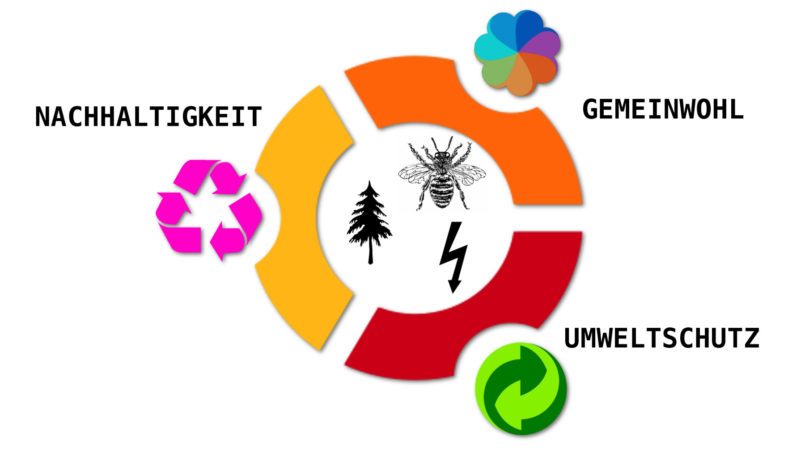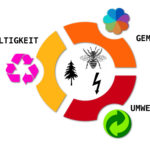Sustainable Economy and Social Cohesion

Event data
- Datum
- 28. 6. 2017
- Host
- Haus der Europäischen Union mit dem Europäischen Wirtschafts- und Sozialausschuss
- Location
- Haus der europäischen Union, Wien
- Event-type
- Vortrag
- Participants
- Carlos Trías Pinto, Mitglied im europäischen Komitee für Soziales und Wirtschaft
- Christian Felber, Initiator der Gemeinwohlökonomie und Buch-Autor
- Jennifer Klink, Gemeinwohl-Beauftragte im Hotel Auersperg in Salzburg
- Herbert Thumpser, Bürgermeister der Gemeinde Traisen
- Michael Müller-Camen, Professor am Institut für Human Resource Management an der Wirtschaftsuniversität Wien
- Peter Zimmerl, Vorstand der Genossenschaft für Gemeinwohl und Cay Urbanek, kaufm. Direktor des Volkstheaters
On Wednesday, June 28, I made my way to the House of the European Union in Vienna where an important topic was to be discussed: how can the economy and sustainability be combined? In addition, an insight into the status quo was given and the problems which currently exist were raised. The representative of the European Economic and Social Committee (EESC), Carlos Trías Pinto, reported on this issue. On this occasion, in particular the concept of an Economy for the Common Good as a solution for a more sustainable, more social economy was discussed. The moderator was Thomas Wagnsonner, also a member of the EESC.
At the beginning, he briefly explained the tasks of the EESC and highlighted that this organisation is a platform for the social partners’ dialogue with the European Union, which is basically an expert body and not a political body. Here, Carlos Trías Pinto took the floor and discussed the economy for the common good as a sustainable economic model.
The idea of the common good balance sheet is that corporate success is no longer measured in business terms as a monetary profit but rather as the advancement of a company toward the economy for the common good. The common good balance sheet is a voluntary tool which is developed by the company itself, but which should later take on an obligatory character.
The 20 issues of content of the economy for the common good include suggestions as to how a common good product should replace the gross domestic product as a performance indicator. With the upper limit regarding the passing of inheritance, a democratic dowry for following generations should be created. The initiation of a fair trade area is sought as much as a school and educational system which acts as a broker for general interest values. By means of referendums, parts of the model should also be anchored in constitutions.
Carlos Trías Pinto then started to talk about the Treaty of the European Union.
But what does all of this look like in reality? In this context, that which is stated in Article 3 has only been partially implemented. However, some demands have been implemented, such as the European Semester which should coordinate economic policy in Europe. This includes, above all, macro-economic indicators as well as budgetary indicators.
But also social indicators should be included. The principle should be established, according to which, for example, the perpetrator should pay for pollution and that those who have to remove the pollution should be recompensed for this. Therefore, a path towards a system of rewards.
In 2014, for example, a law on public limited companies was created in Spain. With the “31/2014” law, the liability for risky decisions of members of boards of directors (and sometimes for the managing directors) was substantially expanded.
The last few years have also witnessed regulation progress in the European Union: for example, Directive 2014/95/EU, in which large companies have to include non-financial declarations in their management report, was introduced. This report has to contain information which is necessary for the understanding of the business development, the business result, the state of the business as well as the impact of its tasks and which at least refers to environmental, social and work-related matters, to the respect of human rights and to the fight against corruption and bribery.
An orientation therefore is the social economy which, from declared values and principles, emerged in the middle of the 19th century. Corporate strategies which give ethics new impulses have to be recognised. The overcoming of voluntariness and self-regulation is moving towards mandatory participation and the objective definition of parameters. Therefore, an external examination is necessary in order to be able to evaluate results, as well as a conditionality, which introduces real legal consequences and rewards in the form of better access to public contracts or support in the internationalization of companies.
The challenges in the implementation of such an economy for the common good is to convince the EU institutions – the European Commission, the EU Parliament, the EU Council and the 28 Member States – of it. In this, the phenomenon of the new economy, which could be taken advantage of, could be helpful.
Carlos Trías Pinto ended his talk and a panel discussion regarding the economy for the common goods was held.
Members of the discussion were Werner Kogler, Spokesman for Finance of the Greens, Fred Luks, Head of the Competence Center for Sustainability at the University of Economics and Business in Vienna, Christian Felber, initiator of the Economy for the Common Good and book author, Jennifer Klink, Common Good Representative at Hotel Auersperg in Salzburg, Herbert Thumpser, Mayor of Traisen, Michael Müller-Camen, Professor at the Institute for Human Resources Management at the University of Economics and Business in Vienna, Peter Zimmer, Chairman of the Association for Common Good, and Cay Urbanek, Commercial Director of the Volkstheater.
The most important statements from this discussion are summarised here:
According to Werner Kogler, the faith in the GDP has decreased with the recognisability of the scarcity of resources, the measurement method of the gross domestic product is insufficient and Austria is also not a pioneer in the economy. In addition, until now there has not been a single ecological tax reform.
Using the hotel where she works, Jennifer Klink gave the example that companies with a non-profit and sustainable orientation can explain themselves much better to their investors with the increasingly known concept of an economy for the common good. As additional expenditure, which is not incurred by non-sustainable companies, arises, it is more difficult to justify this additional expenditure to investors and creditors without this concept.
Credits
| Image | Title | Author | License |
|---|---|---|---|
 |
Public welfare, environmental protection, sustentation | Patryk Kopaczynski | CC BY-SA 4.0 |
